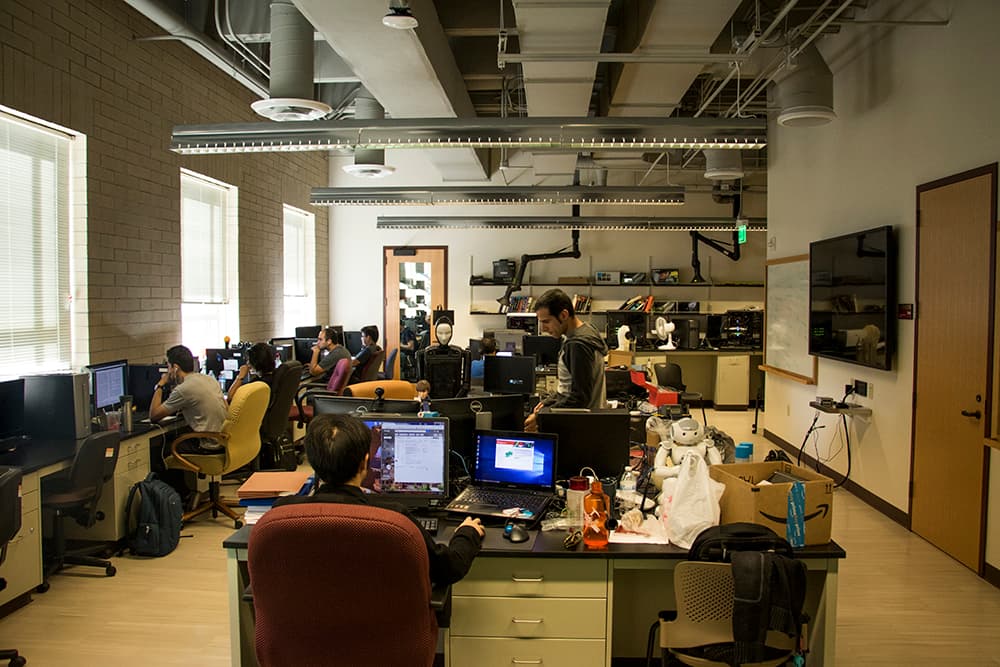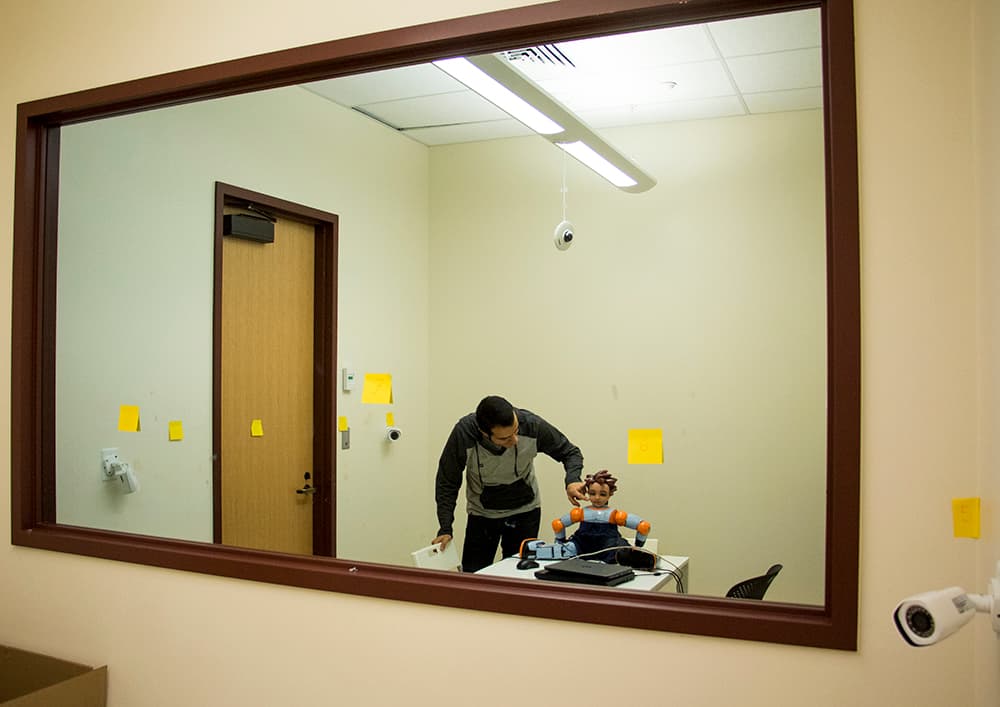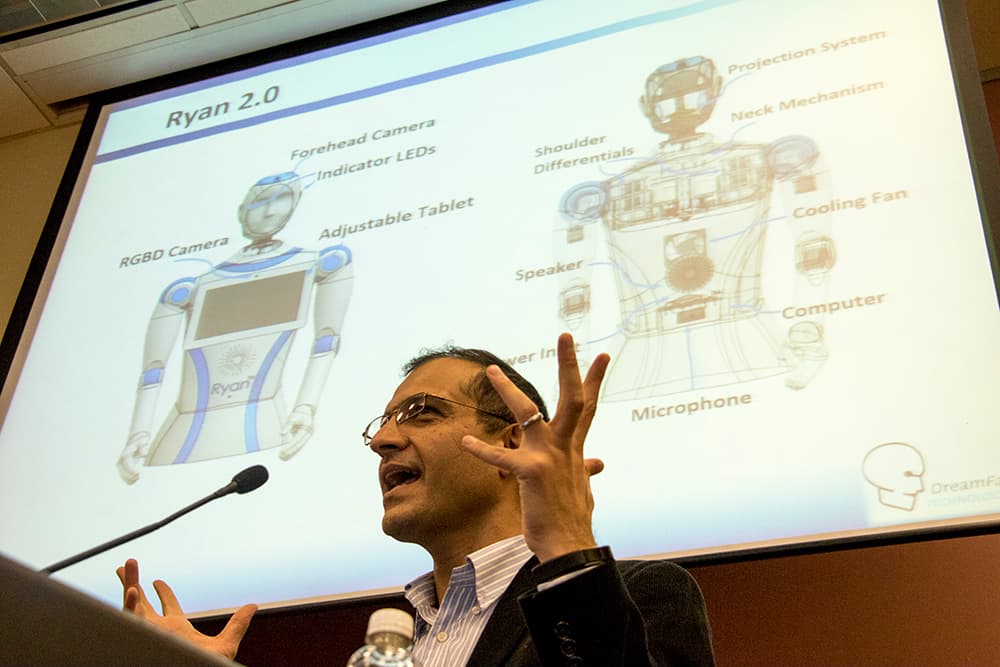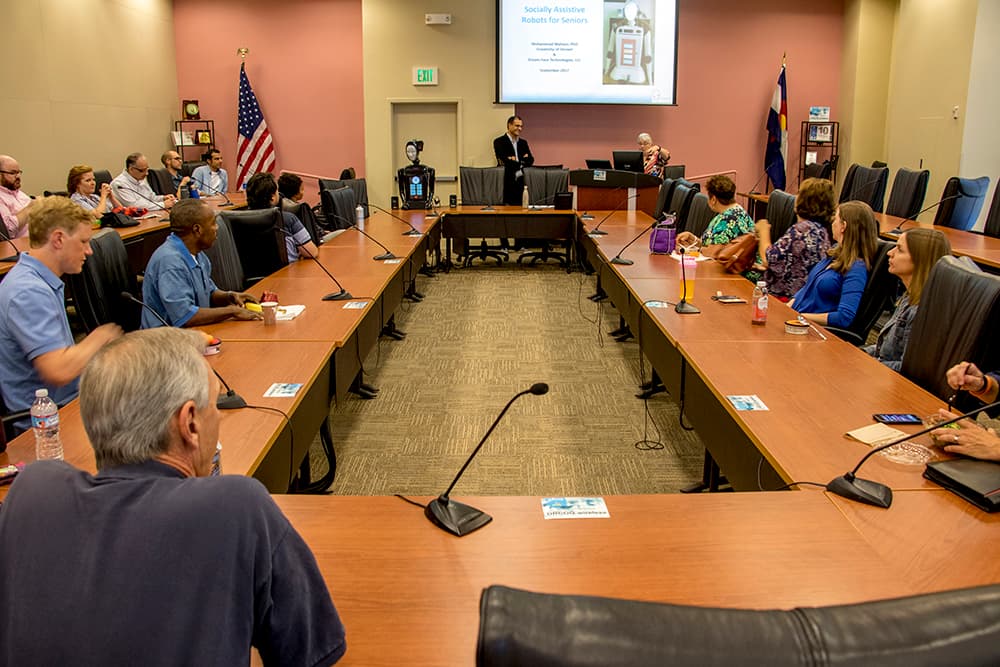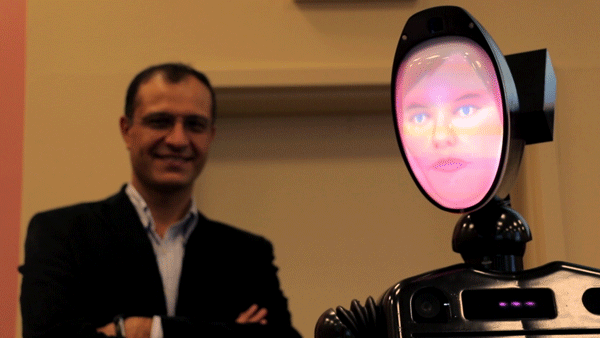
The metro area has a challenge: we're getting older, and fast. Colorado is the third-fastest aging state in the nation, and authorities say we're not yet prepared for the economic and social impacts that are expected to mature by 2030.
The Denver Regional Council of Governments, our federally-recognized Area Agency on Aging, estimates that one in four area residents will be 60 or older in 15 short years. One major problem that will manifest, they say, is a lack of workers to take care of that frailer, increasingly isolated population. That's where University of Denver professor of engineering and computer science, Dr. Mohammad Mahoor, hopes to make an impact.
This week, Mahoor introduced Ryan to DRCOG's staff. Ryan is his prototype "socially-assisted" robot that he hopes will provide companionship to elders with mobility and cognitive issues. Equipped with cameras and software to recognize and imitate emotion, researchers think Ryan could someday be a friend to lonely elders and a tool for overworked caretakers.
While she has some lofty goals, let's just say it: Ryan is weird. As a first-stage prototype, she comes in a little too close to the uncanny valley. But the early-stage Ryan might represent a Rosie the Robot kind of future where our gadgets could act as friends as much as they perform functions. This version demonstrated a few key features that are big news for robotic relations.
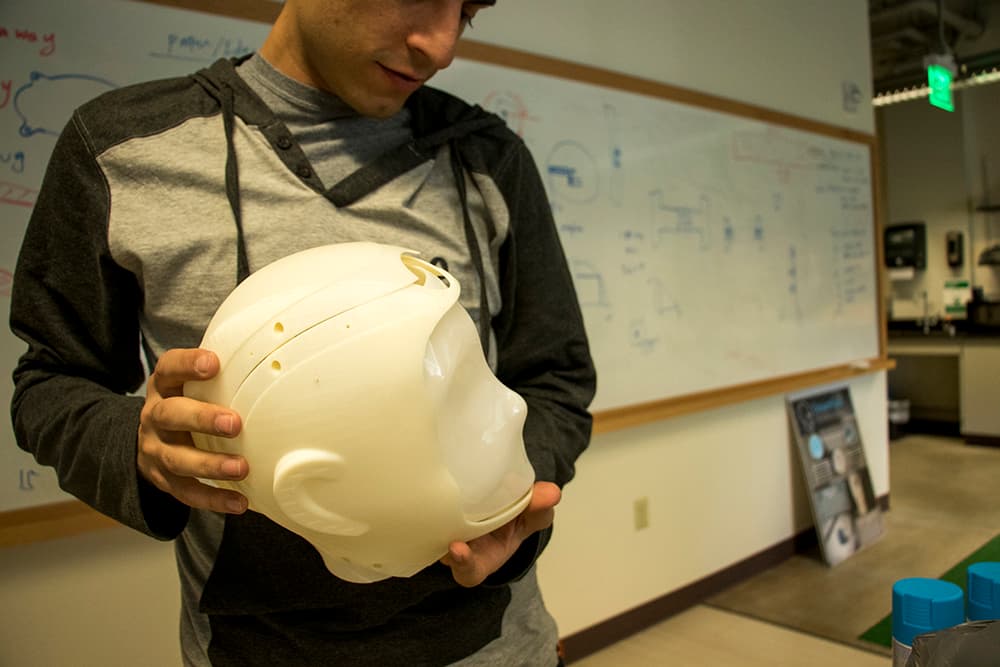
First is her rear-projected face, a patented feature that allows her to assume any identity within human gender and racial spectrums. Today she's a mature, white female, but a future plan has her looking more like a cartoonish, youthful male (which addresses that uncanny valley issue). Her digital face also means her "lips" can be easily synced to her voice, which is important in understanding her.
Second is her ability to recognize a user's emotion through algorithms developed by artificial-intelligence. This is the main effort Mahoor and his team have been working on. Ryan's emotional IQ means she can react appropriately to her human companion's needs. It also means that she can collect data on how people respond to her presence and report back to the research team.
So far Ryan has been tested out with 10 Denver-area elders, making visits as little as two weeks and as long as two months. Her emotionally-attuned data stream, Mahoor reported, matched the users' testimonials: people liked talking to her.
She was configured with a little bit of sass, which makes people smile, and connectivity to the internet means she can answer basic questions. One user suggestion, said Mahoor: program her to gossip.
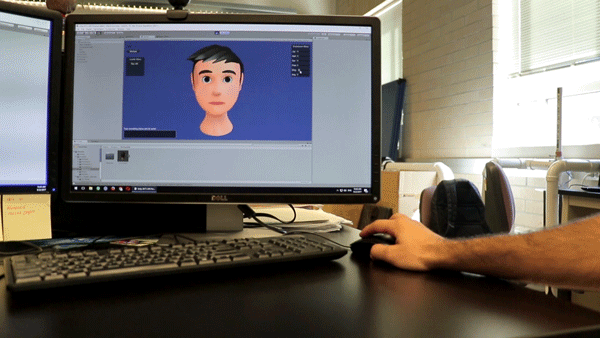
Jayla Sanchez-Warren, DRCOG's Area Agency on Aging director, told Denverite that Ryan's demonstration represented a promising future for caregiving. While some job sectors may be dreading a mechanizing workforce, Sanchez-Warren said caregivers are already hard to find. That deficit, she said, will only grow.
"It takes a special kind of person to work in long-term care," she said. It also doesn't pay well.
Right now, Sanchez-Warren said, you can make more in a year at Burger King than you can as a caregiver in a senior citizen home. "Would you rather flip burgers or wipe bottoms?”
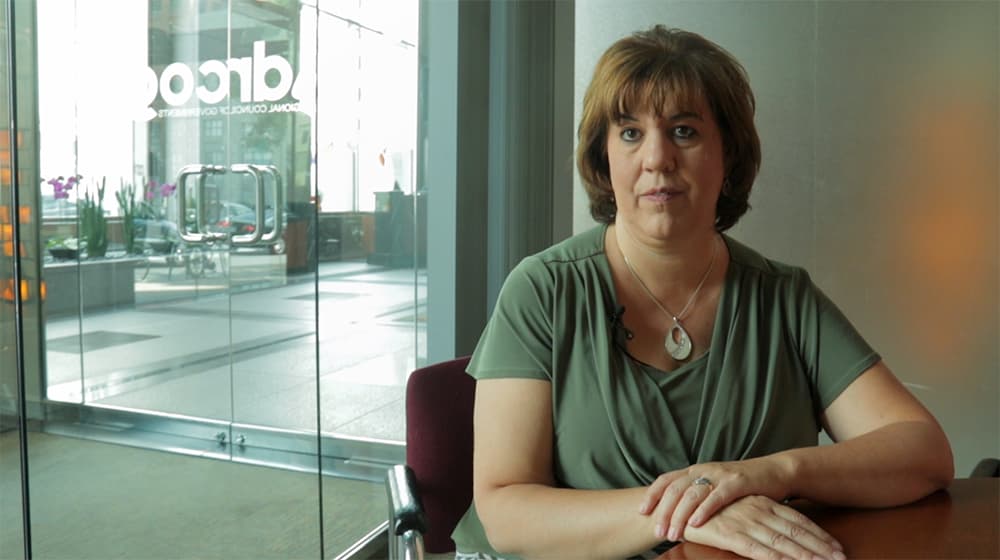
As medical care improves and people live longer, she said, the entire country will have to grapple with how to care for increasing numbers of senior citizens.
While it's Sanchez-Warren's job to see this impending future, she also has a lot of personal experience with caregiving. Sanchez-Warren is the only child of two sets of parents. She says she would love a reliable companion for them, especially if it could provide data too.
Of course, Ryan has been developed for more than a pithy conversation. Mahoor demonstrated her ability to play cognitively-engaging games, which could be handy for patients with Alzheimer's. He says in the future, she'll be able to remind patients to take their pills and possibly even report when they do. That would be a big help to someone like Sanchez-Warren.
Someday, we may find ourselves served by all sorts of humanoid robots. While that widespread use is just a glimmer of hope for some for now, early-stage occurrences like Ryan have already lived with humans. Robot caregivers have a long way to go, but in many ways that Jestons-esque future may be right around the corner.
